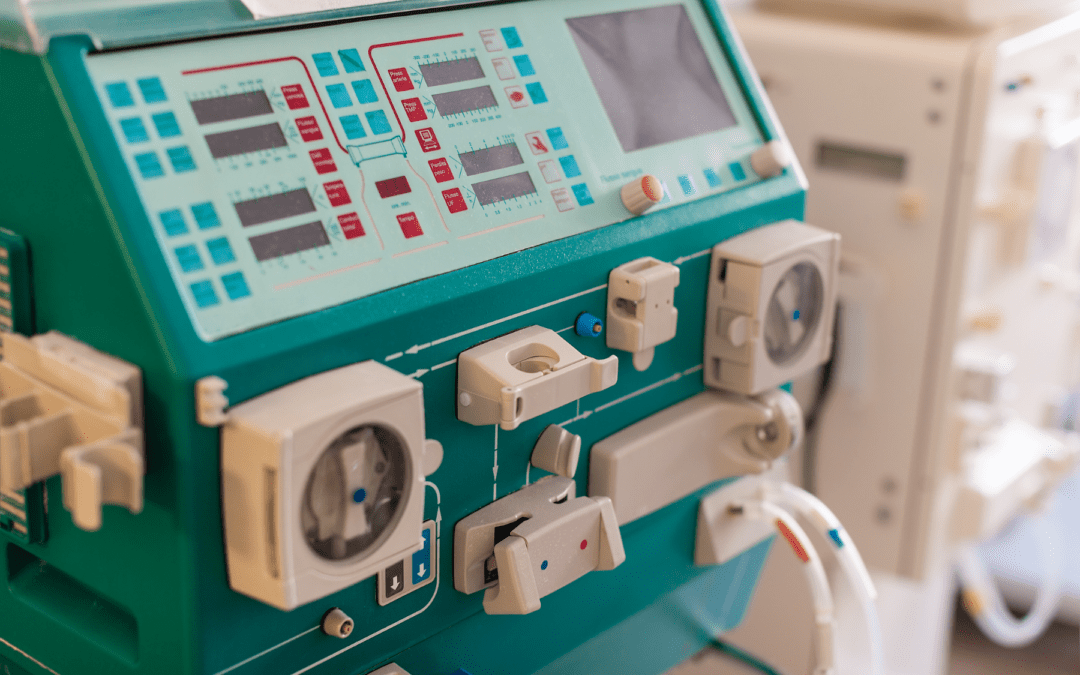Author: Natalia A. Beiser
My need for dialysis started largely because of long term Lithium use. I began taking Lithium in 1994 at the age of twenty two and have what is described as lithium induced nephropathy. This means that I have small cysts all over my remaining kidney. My left kidney was removed two summers ago, as it was discovered that I had developed renal cell carcinoma.
Starting dialysis is difficult. No matter how mentally prepared one thinks that they are for it, the process itself is overwhelming. When the nephrologist thinks that the time is drawing near for treatments, he will tell you that it is time for you to see a vascular surgeon to install a fistula in your non dominant arm.
It takes approximately two to three months for the fistula to “age”, meaning that it is not fully ready to be used until it has matured. In my case, I waited very late because I did not intend to undergo dialysis. I really believed that when the time came that I would opt to go to hospice. I had made my end of life decisions and felt as if I was at peace. However, when death became more imminent, I found that I still had living to do and that I was not ready to die if I did not have to.
My fistula was not quite two months old when I started dialysis, making it difficult for the nurse to obtain access to start the treatment. Due to further complications in accessing the fistula, an ash catheter, also known as a central line or a port in the shoulder blade area, was inserted. I found this to be devastating, as I felt as if I would not have waited so long to have a fistula placed that I would not have needed an ash catheter in the first place. I expressed these thoughts to several of the personnel at the hospital and they encouraged me to rethink that sediment in a less self-defeating way.
I have had several bad experiences with one nephrologist in the practice where I am seen. I told him early on that I was not getting a fistula. He said, “So you are going to wait until the last minute?” I said, “No, I am not getting a fistula because I am not going on dialysis.” He was curt and left the room with a loud thud of the door.
Every time that same nephrologist would see me, he would say, “Are you going to quit taking Lithium?” And I would calmly say “No.” I would explain that it is the only medication that has worked successfully at keeping mania at bay, and that all other drug combinations had failed. I am considered to have difficult to treat bipolar disorder.
At each visit with this doctor, I was either in tears in the exam room or by the time I returned to my car after the visit. In the hospital, I got up the gumption to tell him that I needed something from him. I told him that I never, never, never, ever, EVER wanted him to ask me again if I am going to quit taking Lithium, because I am not. here is no point in asking because the damage is done. The doctor said that he would never ask again.
When I started dialysis, I had a nurse in the inpatient dialysis ward that was trying to take too much fluid off of my body. This causes intense cramping and he apparently was somewhat unfamiliar with what to do to make it stop. I was very afraid that this experience was going to continue, and made it known within my medical community that I would not spend the rest of my life experiencing that kind of pain. Fortunately the folks at the outpatient dialysis unit know what to do to get the pain to stop.
I never thought that I would say this, but I am now glad that I started dialysis. I feel as if I have some facets of my life back. I do not yawn as much and I am not exhausted any longer. Granted, I have to spend twelve hours a week at the dialysis clinic. However, it is solitary time. I can quietly read, watch television, sleep, talk to the staff (everyone is so nice at my center!), listen to music or perform other activities that can keep one’s non dominant hand still, because it cannot be used at the time of dialysis.
I still keep a small schedule at work, which keeps me feel a little productive and I believe that I am now able to give back more because I have more energy. Starting dialysis feels as if a very large weight has been removed from my body. It is much simpler to perform virtually any task now.
My psychiatrist continues to tinker with my Lithium dose. We have had to increase the dose because the dialysis machine washes out the medication in my system. On days that I have dialysis, I take Lithium at night. On days that I do not have dialysis, I take the Lithium dose in the morning.
There is no doubt that dialysis can be frightening. I cried for over half the time that I was there on both the first treatment at the hospital and at the outpatient clinic. Dialysis is not for sissies, but neither is Bipolar Disorder, or Lithium!
The content of the International Bipolar Foundation blogs is for informational purposes only. The content is not intended to be a substitute for professional medical advice, diagnosis, or treatment. Always seek the advice of your physician and never disregard professional medical advice because of something you have read in any IBPF content.


